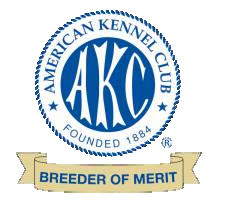Information from Perfect Paws, Inc.
The reason most dogs and puppies jump up on people is because they are happy and excited to see them! Jumping, leaping and bouncing are ways your dog shows affection and receives attention. The behavior is usually learned while they are puppies. When a puppy is very young, we usually sit on the floor, let them wiggle into our laps and allow them to lick and nuzzle up close to our face. When they come bounding over to greet us, jumping and stretching up to our knees, again we bend down, pick them up and exchange hugs and kisses. All this time we are training and rewarding the puppy for jumping up. Eventually we decide we don't like this behavior anymore. What used to be cute is now obnoxious and even dangerous if the dog is jumping up on children or the elderly.
The Jumping Problem Continues
Our inconsistency perpetuates the problem. Some of the time we tolerate the jumping and ignore it. Other times we reward the behavior by exchanging enthusiastic greetings. But when we're dressed up and the dog's paws are muddy, it's a different story. Reprimanding the dog for jumping up usually does not work. Either the dog misunderstands the reprimand as praise or he gets even more excited and the jumping gets worse. If the reprimand is severe enough, the dog may stop jumping at that moment but it doesn't solve the problem altogether; and it certainly is not a very nice thing to do. It's very similar to a person approaching you with a big smile, arm extended to exchange a hand-shake and you bopping the person in the nose. Even if your dog learns that jumping up on you is not a good idea, he will usually get away with jumping up on everyone else.
The End of the Jumping Problem
A better solution is providing your dog with an alternative method of greeting you and others. Teach your dog to sit-stay. He cannot sit-stay and jump up at the same time. When he is sitting you can then kneel down and give him a warm hug and kiss. Practice is essential. If your dog is excitedly jumping up when you return home from work and this only happens once a day, then he is only getting one practice session a day. If he is jumping up on your company and you only have visitors once a week, then he is only getting one practice session a week. In order to perfect the proper greeting routine, your dog needs much more practice than that. You can speed up the training process by leaving through the back door and returning through the front door over and over again. When your friends come over, have them do the same. Each time, ask your dog to sit-stay before opening the door. At first his excitement will make it difficult for him to concentrate but after you've repeated this process 10 times, he will calm down and be able to concentrate. Before asking your dog to sit-stay in this distracting and exciting situation, be sure he has a reliable sit-stay in normal, non-stressful situations.
Jumping up can be dangerous as well as annoying. Just as many owners are sued for their jumping dogs as their biting dogs. Young children and elderly people can easily be toppled over and seriously injured by exuberant, friendly dogs. Start now to teach your puppy not to jump up. Even little dogs can cause problems and injury to themselves and others when they leap and jump around.
DO
- Gently and repetitively place puppy's feet back on the floor and reward him there.
- Be consistent.
- Get down to his level to give affection and attention.
DON'T
- Do not allow the pup to jump up. Do not pet, talk, cuddle or reward him for jumping.
- Do not give in!
- Do not allow other people to let him jump on them.
- Do not give up!

